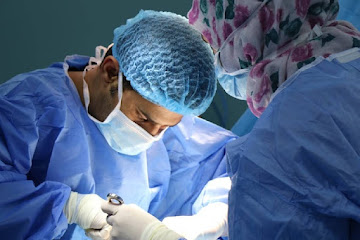Heart attack, also known as myocardial infarction, is a serious medical condition that occurs when the blood flow to the heart muscle is blocked. This can cause damage to the heart muscle and can be life-threatening if not treated immediately.
In this blog, Dr. Sujay Shad, known as the best cardiac surgeon in Delhi, will discuss everything that one should know about heart attacks, including their causes, symptoms, diagnosis, and treatment.
Causes of Heart Attack
A heart attack occurs when the blood flow to a part of the heart is blocked, usually by a blood clot. The most common cause of this blockage is a build-up of fatty deposits, also known as plaque, in the arteries that supply blood to the heart. Other causes of a heart attack include:
- Smoking
- High blood pressure
- High cholesterol levels
- Diabetes
- Family history of heart disease
- Obesity
- Lack of physical activity
- Stress
- Drug abuse.
Symptoms of Heart Attack
The symptoms of a heart attack can vary from person to person, and not everyone experiences the same symptoms. However, some common symptoms of a heart attack include the following:
- Chest pain or discomfort, which may feel like pressure, squeezing, or fullness in the chest
- Pain or discomfort in the arms, neck, jaw, back, or stomach
- Shortness of breath
- Sweating
- Nausea or vomiting
- Dizziness or lightheadedness
- Fatigue or weakness.
It's important to note that some people, especially women, may not experience chest pain during a heart attack. Instead, they may experience other symptoms such as shortness of breath, nausea, or fatigue.
Diagnosis of Heart Attack
If someone is experiencing any symptoms of heart attack, it's important to seek medical attention immediately. The sooner a heart attack is diagnosed and treated, the better the outcome.
To diagnose a heart attack, a cardiac surgeon may perform a physical checkup and ask about the symptoms and medical history. They may also perform some diagnostic tests, including:
- Electrocardiogram (ECG): This test measures the electrical activity of the heart and can help identify abnormalities in the heart rhythm.
- Blood tests: These tests can help identify enzymes and proteins the heart releases during a heart attack.
- Chest X-ray: This test can help identify abnormalities in the heart and lungs.
- Coronary angiography: This test involves injecting dye into the arteries of the heart and taking X-rays to identify blockages or narrowed areas.
Treatment of Heart Attack
The goal of treatment for a heart attack is to restore blood flow to the heart muscle as quickly as possible. The sooner blood flow is restored, the less damage there will be to the heart muscle. Treatment for a heart attack may include:
- Medications: Medications such as clot-busting drugs may be given to help restore blood flow to the heart and prevent further damage.
- Coronary angioplasty and stenting: This procedure involves inserting a thin tube with a balloon on the end into the blocked artery and inflating the balloon to widen the artery. A small mesh tube, called a stent, may also be inserted to help keep the artery open.
- Coronary artery bypass surgery: It is a type of open heart surgery in Delhi performed by Dr. Sujay Shad. This surgical procedure involves creating a new route for blood to flow around the blocked artery.
- Heart valve repair and replacement: A most common reason for heart stroke is blockage in the valve. A cardiac surgeon repairs the damage to heart valves (mitral, aortic, pulmonary and tricuspid) or replaces them with artificial ones if required.
- Lifestyle changes: After a heart attack, it's important to make lifestyle changes to reduce the risk of future heart problems. This may include quitting smoking, eating a healthy diet, getting regular exercise, and managing stress.
- Heart transplant: Heart transplant is a unique and most effective treatment of replacing an healthy heart with fully functional blockage caused by cholesterol-free heart.
Prevention of Heart Attack
There are several things you can do to reduce your risk of a heart attack, including:
- Quit smoking: Smoking is a major risk factor for heart disease, so quitting smoking is one of the best things you can do
- Eating a heart-healthy diet: A diet that is low in saturated and trans fats, cholesterol, and sodium, and rich in fruits, vegetables, whole grains, and lean proteins can help improve heart health.
- Maintaining a healthy weight: Being overweight or obese can increase the risk of heart disease, so maintaining a healthy weight through regular exercise and a healthy diet is important.
- Managing stress: Stress can increase the risk of heart disease, so finding healthy ways to manage stress, such as exercise, meditation.
Heart attacks need immediate treatment. Hence, one feeling chest pain, heavy breathing, dizziness or any other symptoms from the above-mentioned list need to avoid wasting time in home remedies and schedule an emergency consultation with a best heart specialist.
In advance, book an appointment with Dr. Sujay Shad- best heart surgeon in Delhi at Sir Ganga Ram Hospital roday for more information.









